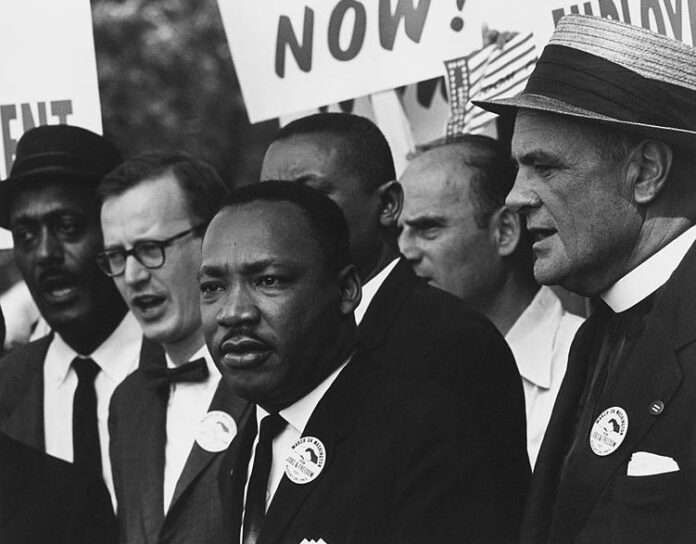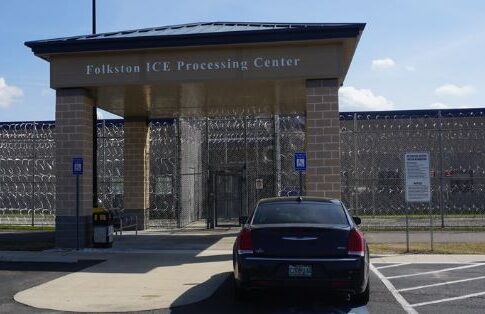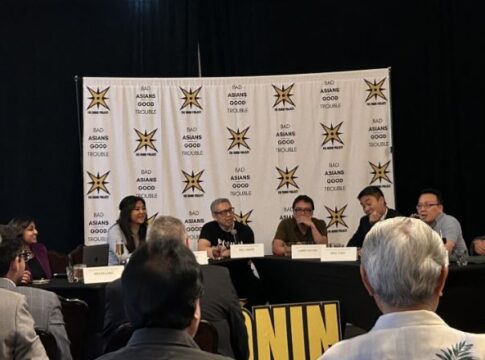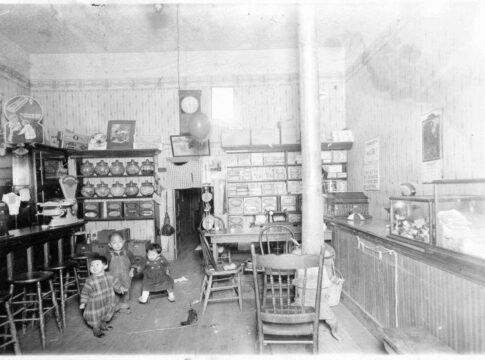Born in San Francisco Chinatown and raised in Stockton, Henry Der remembers the civil rights movement of the ’60’s well.
He spent his career fighting for the civil rights of Asian Americans and many other marginalized groups and considers the civil rights movement of the ’60’s to be a key influence on struggles for the rights of Asian Americans.
However, a new study by the Pew Research Center says Asian Americans are the least likely to be familiar with the civil rights movement or the legacy of Martin Luther King.
25% of Asian Americans surveyed say they either know “not much” or “nothing at all” about King’s ‘I have a dream’ speech. That’s nearly twice as much as all adults (13%), Hispanics (23%), Whites (11%), and Black Americans (6%).
Growing up on the east side of Stockton, Der recalls his friend on the speech team giving his own rendition of King’s ‘I Have a Dream’ speech, and his reaction to the proposal of being bussed to the north side of the city to integrate schools.
LATEST STORIES
“So, in the summer of ’63, I was quite aware of Martin Luther King’s March on Washington, and of course all the speeches that he gave that summer, and in particular the ‘I have a dream’ speech.
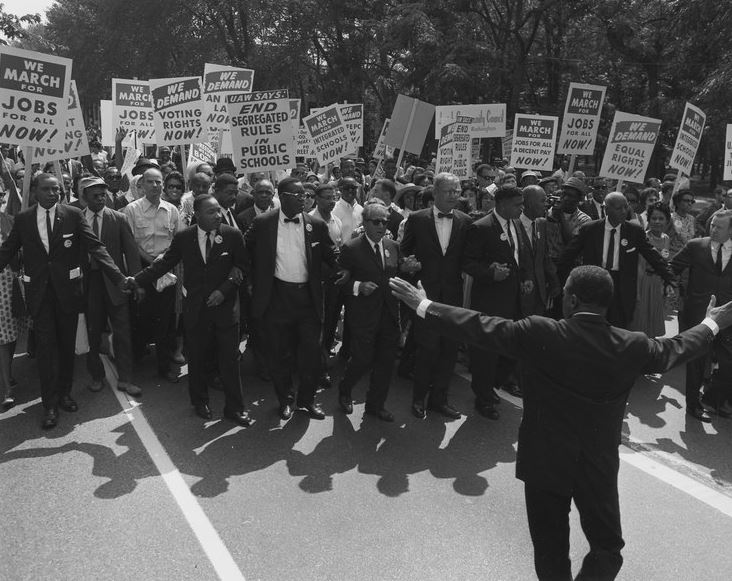
“I would hasten to add, there was not at that time any consciousness about an Asian American civil rights effort in the early 1960’s, at least where I lived in Stockton, but certainly we were aware of the matter of race,” he told AsAmNews.
Der would later become the executive director of Chinese for Affirmative Action, a SF-based Chinese American civil rights group and a co-founder of Stop AAPI Hate.
We asked him about some of the results Pew found in their survey for the 60th anniversary of the March on Washington, and spoke to Juliana Horowitz, the Associate Director of Research at Pew.
The Pew research focused on polling around three main topics, Dr. King’s legacy, the United States’ progress on racial equality, and the changes needed in order to achieve racial equality. Horowitz, who lead the research project, told us that “The views of Asian Americans are in many ways consistent with the views of White and Hispanic Americans, it’s really Black Americans that stand out in a lot of the questions we asked about.”
But, there were some differences. Horowitz explained that “one thing I think is really interesting with Asian Americans is that there is in some ways a lack of familiarity, […] so I think that’s interesting and I think it’s important to be able to document that for some groups there’s also a lack of familiarity with King and with his legacy and the speech itself.”
43% of Asian American respondents answered that MLK had a very positive impact on the country, slightly lower than the average, and 38% said a somewhat positive impact.
The Pew survey asked how much progress respondents thought that the US had made towards achieving racial equality since the ‘60s. A small majority of Americans and a plurality of Asian Americans said a great deal or a fair amount, while 21% of Asian adults and 15% of all Americans said not much or none at all.
When we asked Der about the question, he said that while Asian Americans have benefitted from the civil rights movements of the ’60’s, ’70’s and ’80’s, especially with representation in the workplace, government and higher education, “This integration in different arenas of American life has not […] stopped anti-Asian stereotypes and anti-Asian hate.”
55% of Asian Americans surveyed by Pew say that efforts to ensure racial equality haven’t gone far enough, while 19% say the opposite. 26% say it’s been about right. They continued, asking those who answered more needed to be done about what specific parts of society need to be rebuilt to ensure racial equality, the categories surveyed being policing, the political system, healthcare, the courts and judicial processes, and the economic system.
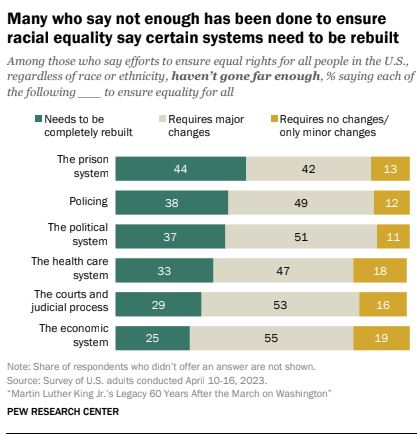
Der told us that all of those systems need to be rebuilt, an opinion shared by relatively low numbers of Asian Americans for some of the categories. Only 17% of Asian Americans think the courts and judicial processes need to be rebuilt, a lower proportion than the opinions of any other group surveyed for any of the categories—including the group of Republicans who said not enough has been done to achieve racial equality.
Der told us that “what I find disturbing is the right wing in America has very successfully driven certain wedges within minority communities, like in San Francisco, like in New York, where because of the rise in anti-Asian hate incidents, they have really exploited these fears held by Asians to call for more law and order, y’know tougher anti-crime practices—’just lock everybody up, throw the book at them.'”
However, the desire for rebuilding the healthcare system is highest among Asian Americans for any racial or ethnic group surveyed, at 39%, perhaps due to the discrimination and disparate outcomes in healthcare suffered by Asian Americans, as documented by the medical journal the Lancet. The Asian American respondents were also relatively critical of policing, with 41% answering the system needs to be rebuilt, the second-highest rate after Black Americans.
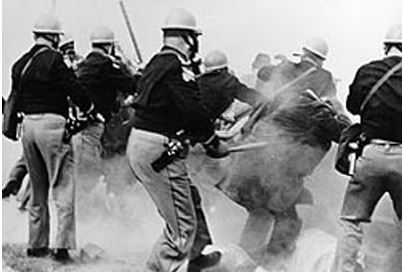
One of the limiting factors of the survey was that it’s results are only representative of English-speaking Asian Americans. According to Henry Der, that’s an important information gap to close, when trying to understand attitudes about race in the Asian American community.
“The far-right knows there’s an opportunity to exploit people’s lack of knowledge, especially among new immigrants. One thing that I’ve come to recognize, [is that] we probably have not done enough to educate people in our own community about the issue of race, racism and the civil rights movement. Sometimes we just assume that people are familiar with it, with that history, when in fact they are not. And it’s really the lack of awareness of that history that the far-right can exploit.”
In conducting the study, Horowitz and the Pew Research team wanted to complement a focus on King’s legacy with a look at views on the US’s progress with achieving racial equality generally “and just sort of tackle not just the personal views, the ratings of Martin Luther King Jr. but also these broader questions about what’s happened in the country in the last 60 years.”
AsAmNews is published by the non-profit, Asian American Media Inc. Follow us on Facebook, X, Instagram, TikTok and YouTube. Please consider making a tax-deductible donation to support our efforts to produce diverse content about the AAPI communities. We are supported in part by funding provided by the State of California, administered by the California State Library in partnership with the California Department of Social Services and the California Commission on Asian and Pacific Islander American Affairs as part of the Stop the Hate program. To report a hate incident or hate crime and get support, go to CA vs Hate.

